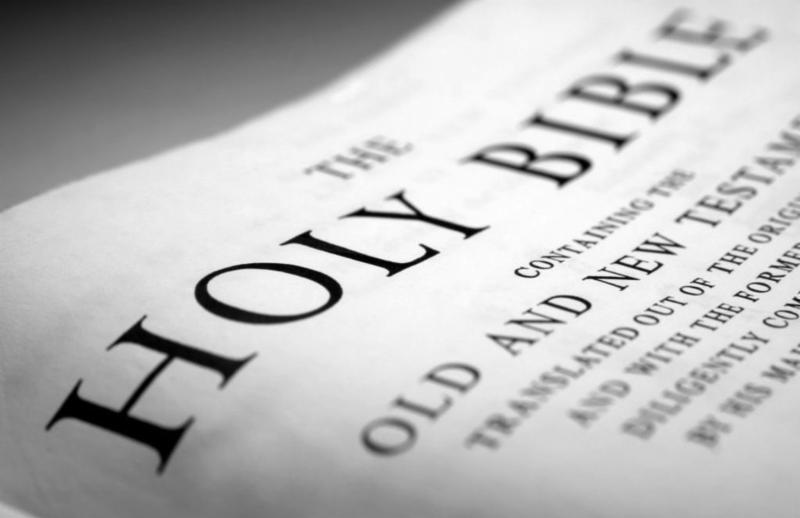"Jesus
isn't here! He has been raised from death. Remember that while he was still in
Galilee, he told you, 'The Son of Man will be handed over to sinners who will
nail him to a cross. But three days later he will rise to life.'"
-- Luke
24:6-7
If it bleeds, it leads.
That's the old saying in the news
business. Turn on the TV, read a newspaper or visit a news website and you're
bound to come across story after story about political incompetence,
"skyrocketing" unemployment and degenerate human behavior. The fact
is that the media thrives on bad news and hyping the worst possible scenarios.
After all, glad tidings rarely drive ratings or sell magazines. And positive
headlines can make for lousy click-bait.
A steady stream of good news also
 doesn't paint an unrealistic picture of our
circumstances. For example, a gloomy economic report from a government agency
can lead to self-fulfilling prophesies when the public becomes too scared to
buy a much-needed automobile or even a new pair of shoes. True, too many people
really ARE struggling with difficult life challenges. But unemployment, crime,
sickness and death have been part of the human experience for centuries--even
in the best of times. There's nothing new there.
doesn't paint an unrealistic picture of our
circumstances. For example, a gloomy economic report from a government agency
can lead to self-fulfilling prophesies when the public becomes too scared to
buy a much-needed automobile or even a new pair of shoes. True, too many people
really ARE struggling with difficult life challenges. But unemployment, crime,
sickness and death have been part of the human experience for centuries--even
in the best of times. There's nothing new there.
 doesn't paint an unrealistic picture of our
circumstances. For example, a gloomy economic report from a government agency
can lead to self-fulfilling prophesies when the public becomes too scared to
buy a much-needed automobile or even a new pair of shoes. True, too many people
really ARE struggling with difficult life challenges. But unemployment, crime,
sickness and death have been part of the human experience for centuries--even
in the best of times. There's nothing new there.
doesn't paint an unrealistic picture of our
circumstances. For example, a gloomy economic report from a government agency
can lead to self-fulfilling prophesies when the public becomes too scared to
buy a much-needed automobile or even a new pair of shoes. True, too many people
really ARE struggling with difficult life challenges. But unemployment, crime,
sickness and death have been part of the human experience for centuries--even
in the best of times. There's nothing new there.
OK. Enough with the depressing
headlines. How about some good news for a change?
As Christ-followers, our Good
News (the Gospel) is that Jesus paid the price for our sins (past, present and
future) when He died on the cross in our place. Then, just as predicted in the
Old Testament, God resurrected him to life to forever defeat the power of sin
and death in our lives. It's this same power that will one day raise all
believers to eternal life and joy with our Creator.
"Death has lost the battle!"
wrote the Apostle Paul. "Where
is its victory? Where is its sting?"
This kind of Good News changes
everything. But does it sound a bit too good to be true? If so, you're not
alone. Even some of Jesus' apostles refused to believe it when they first heard
that he was alive. Let's consider this encouraging passage from the Gospel of John, which
reports the skepticism--and later amazement--of Thomas (the one forever known
as "Doubting Thomas"):
Although Thomas the Twin was one
of the twelve disciples, he wasn't with the others when Jesus appeared to
them. So they told him, "We have seen the Lord!" But Thomas
said, "First, I must see the nail scars in his hands and touch them with
my finger. I must put my hand where the spear went into his side. I won't
believe unless I do this!"
A week later the disciples were
together again. This time, Thomas was with them. Jesus came in while the doors
were still locked and stood in the middle of the group. He greeted his
disciples and said to Thomas, "Put your finger here and look at my hands!
Put your hand into my side. Stop doubting and have faith!" Thomas replied,
"You are my Lord and my God!"
Jesus said, "Thomas, do you
have faith because you have seen me? The people who have faith in me without
seeing me are the ones who are really blessed!"
Are too many negative headlines
getting you down? Then log off the Internet, turn off the TV and start reading some Good News...the kind that changes everything.



